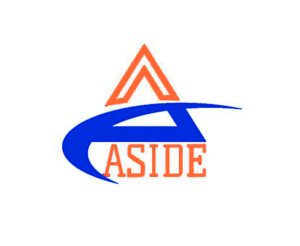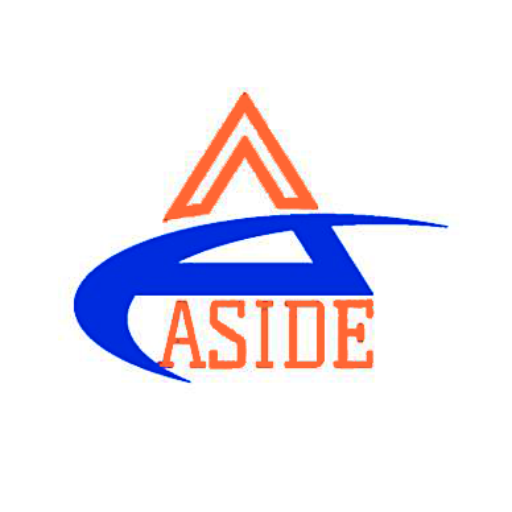
Synthroid Uses, Dosage & Side Effects
Synthroid Uses, Dosage & Side Effects
Since thyroid hormone occurs naturally in the body, almost anyone can take levothyroxine. However, you may not be able to take this medicine if you have certain medical conditions. Exogenous thyroid hormone may produce regression of metastases from follicular and papillary carcinoma of the thyroid and is used as ancillary therapy of these conditions with radioactive iodine. Therefore, larger amounts of thyroid hormone than those used for replacement therapy are required. Medullary carcinoma of the thyroid is usually unresponsive to this therapy. Therapy is usually instituted using low doses, with increments which depend on the cardiovascular status of the patient.
Important Administration Instructions
Thyroid hormones may increase the risk of coronary insufficiency when sympathomimetic agents are administered to patients with coronary artery disease. Carefully monitor glycemic control, especially when thyroid therapy is started, changed, or discontinued see WARNINGS AND PRECAUTIONS. Pseudotumor cerebri and synthroid slipped capital femoral epiphysis have been reported in pediatric patients receiving levothyroxine therapy. For pregnant patients with pre-existing hypothyroidism, measure serum TSH and free-T4 as soon as pregnancy is confirmed and, at minimum, during each trimester of pregnancy.
- Do not share this medicine with another person, even if they have the same symptoms you have.
- In pregnant patients with primary hypothyroidism, maintain serum TSH in the trimester-specific reference range.
- It is very important that your doctor check the progress of you or your child at regular visits.
2 Antidiabetic Therapy
In addition, many drugs and foods affect T4 absorption see DRUG INTERACTIONS. Thyroid hormones, including SYNTHROID, either alone or with other therapeutic agents, should not be used for the treatment of obesity or for weight loss. In euthyroid patients, doses within the range of daily hormonal requirements are ineffective for weight reduction. Larger doses may produce serious or even life-threatening manifestations of toxicity, particularly when given in association with sympathomimetic amines such as those used for their anorectic effects. Larger doses may produce serious or even life-threatening manifestationsof toxicity, particularly when given in association with sympathomimetic amines such as those used for their anorectic effects.
CLINICAL PHARMACOLOGY
- Published studies report that levothyroxine is present in human milk following the administration of oral levothyroxine.
- Administration of thyroid hormone in doses higher than those produced physiologically by the gland results in suppression of the production of endogenous hormone.
- Administer SYNTHROID at least 4 hours before or after drugs known to interfere with SYNTHROID absorption see Drug Interactions (7.1).
- For secondary or tertiary hypothyroidism, serum TSH is not a reliable measure of SYNTHROID dosage adequacy and should not be used to monitor therapy.
Oral levothyroxine sodium is a synthetic T4 hormone that exerts the same physiologic effect as endogenous T4, thereby maintaining normal T4 levels when a deficiency is present. Thyroid hormones exert their physiologic actions through control of DNA transcription and protein synthesis. Triiodothyronine (T3) and L-thyroxine (T4) diffuse into the cell nucleus and bind to thyroid receptor proteins attached to DNA. This hormone nuclear receptor complex activates gene transcription and synthesis of messenger RNA and cytoplasmic proteins. The estimated background risk of major birth defects and miscarriage for the indicated population is unknown.
Adverse Reactions
Administration of sertraline in patients stabilized on SYNTHROID may result in increased SYNTHROID requirements. Hypersensitivity reactions to inactive ingredients have occurred in patients treated with thyroid hormone products. These include urticaria, pruritus, skin rash, flushing, angioedema, various gastrointestinal symptoms (abdominal pain, nausea, vomiting and diarrhea), fever, arthralgia, serum sickness, and wheezing. Hypersensitivity to levothyroxine itself is not known to occur.
Armour Thyroid is used for hashimoto’s disease, hypothyroidism, after thyroid removal, thyroid … This is not a complete list of side effects and others may occur. They should do so in light of their duties to have due regard to the need to eliminate unlawful discrimination, to advance equality of opportunity and to reduce health inequalities. The recommendations in this guidance represent the view of NICE, arrived at after careful consideration of the evidence available. When exercising their judgement, health professionals are expected to take this guidance fully into account, alongside the individual needs, preferences and values of their patients. We anticipate reposting the images once we are able identify and filter out images that do not match the information provided in the drug labels.
Therefore, a decrease in the dose of anticoagulant may be warranted with correction of the hypothyroid state or when the SYNTHROID dose is increased. Closely monitor coagulation tests to permit appropriate and timely dosage adjustments. SYNTHROID is indicated in adult and pediatric patients, including neonates, as an adjunct to surgery and radioiodine therapy in the management of thyrotropin-dependent well-differentiated thyroid cancer. In acute, emergency conditions, injectable levothyroxine sodium (T4) may be given intravenously when oral administration is not feasible or desirable, as in the treatment of myxedema coma, or during total parenteral nutrition. Intramuscular administration is not advisable because of reported poor absorption.
Oral levothyroxine is taken by mouth and is available as tablets, capsules, and an oral solution. You may not be able to use levothyroxine if you have certain medical conditions. Tell your doctor if you have an untreated or uncontrolled adrenal gland disorder or any heart problems such as a recent heart attack. Eltroxin is used for hashimoto’s disease, hypothyroidism, after thyroid removal, myxedema coma … Unithroid is used for hashimoto’s disease, hypothyroidism, after thyroid removal, myxedema coma …
Adequate levothyroxine treatment during lactation may normalize milk production in hypothyroid lactating mothers with low milk supply. Treat patients with adrenal insufficiency with replacement glucocorticoids prior to initiating treatment with SYNTHROID see CONTRAINDICATIONS. Titrate the dose of SYNTHROID carefully and monitor response to titration to avoid these effects see DOSAGE AND ADMINISTRATION. Consider the potential for food or drug interactions and adjust the administration or dosage of SYNTHROID as needed see DOSAGE AND ADMINISTRATION, DRUG INTERACTIONS and CLINICAL PHARMACOLOGY. Toxic effects may include increased risk of cardiac arrhythmias and central nervous system stimulation.
Tell your doctor if you are pregnant or plan to become pregnant. Having hypothyroidism during pregnancy may increase the risk of premature birth or other complications. The benefit of treating hypothyroidism may outweigh any risks to the baby.


